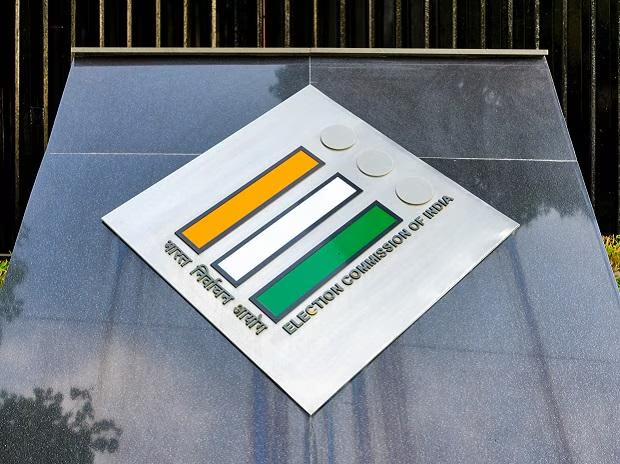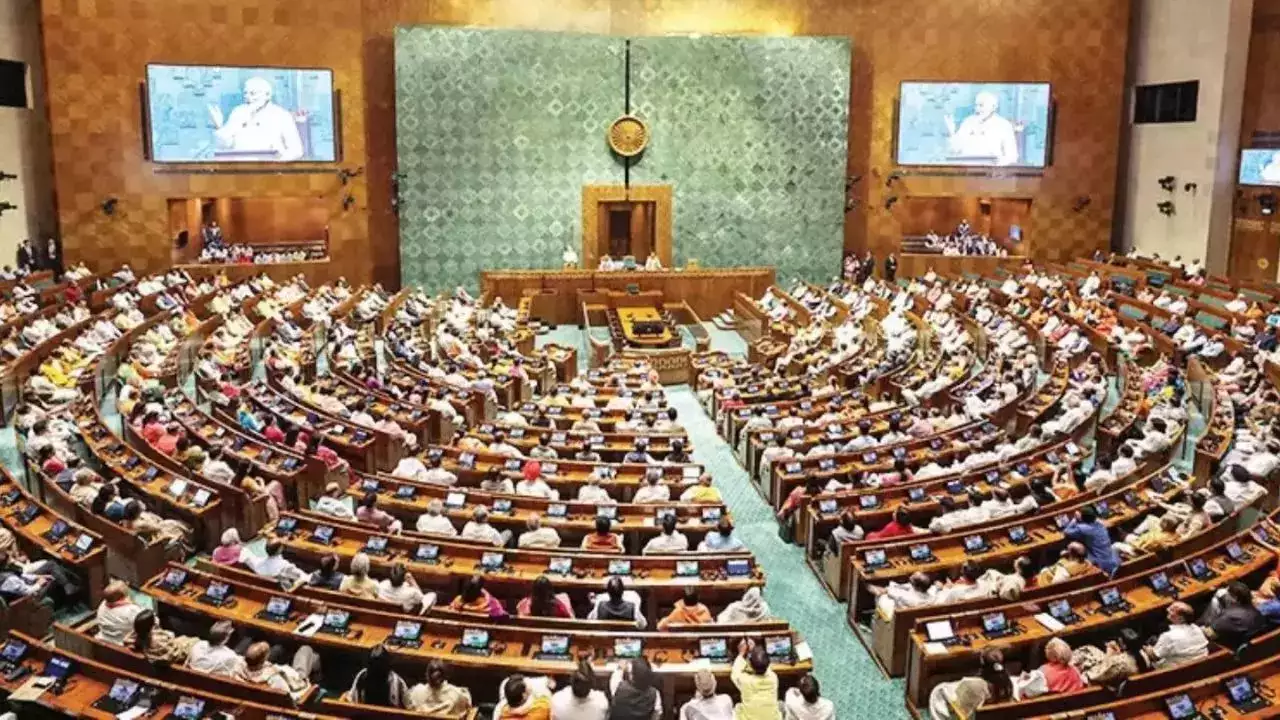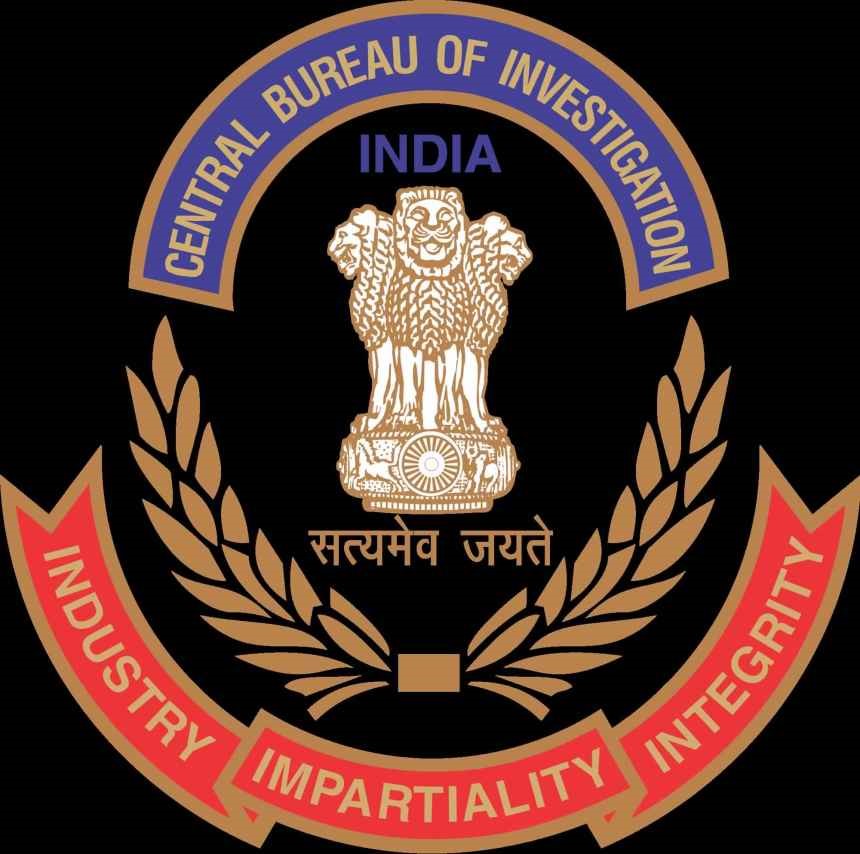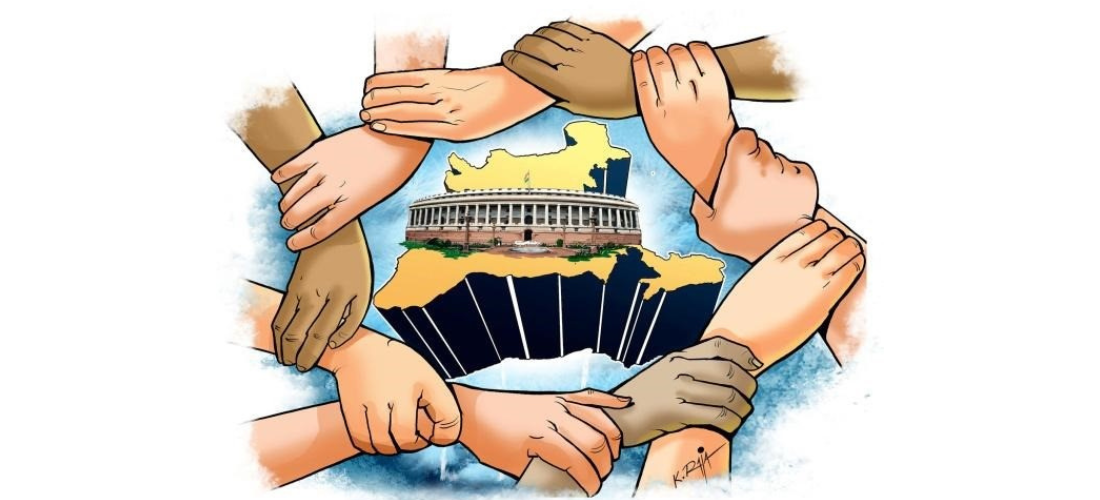- Courses
- GS Full Course 1 Year
- GS Full Course 2 Year
- GS Full Course 3 Year
- GS Full Course Till Selection
- CSAT
- 5 LAYERED ARJUNA Mentorship
- Public Administration Optional
- Online Program
- GS Recorded Course
- NCERT Batch
- Polity Module Course
- Geography Module Course
- Economy Module Course
- AMAC Module Course
- Modern India, Post Independence & World History Module Course
- Environment Module Course
- Governance Module Course
- Science & Tech. Module Course
- International Relations and Internal Security Module Course
- Disaster Management Module Course
- Ethics Module Course
- Essay Module Course
- Current Affairs Module Course
- ABOUT US
- OUR TOPPERS
- TEST SERIES
- FREE STUDY MATERIAL
- VIDEOS
- CONTACT US
75 Years of ECI and National Voters' Day
75 Years of ECI and National Voters' Day

- The 15th National Voters’ Day (NVD) celebrated across the country on 25th January.
- This Year’s Theme “Nothing Like Voting, I Vote for Sure”.
- Since 2011, National Voters’ Day (NVD) has been observed annually on January 25 to commemorate the foundation day of the Election Commission of India (ECI) , established on January 25, 1950, a day before India became a Republic.
- The Election Commission also celebrates 75 years of its dedicated service to the nation.
About Election Commission of India (ECI)
- The Election Commission of India (ECI) is a permanent constitutional body established on 25th January 1950.
- Constitutional Provision of ECI: ECI’s functioning is governed by Part XV of the Constitution, which includes Articles 324 to 329.
- Statutory Provisions of ECI: The Chief Election Commissioner and Other Election Commissioners (Appointment, Conditions of Service and Term of Office) Act, 2023 regulates their appointment, service conditions, tenure, etc.
- Key Role: ECI administers elections to:
- Lok Sabha (House of the People)
- Rajya Sabha (Council of States)
- State Legislative Assemblies
- Offices of the President and Vice President
- Composition of the Election Commission: The ECI is composed of:
- Chief Election Commissioner (CEC)
- Two Election Commissioners (EC)
- Initially, the commission only had a CEC. However, in 1989, two Election Commissioners were appointed and continued till 1st January 1990. Since 1993, the commission has permanently included two Election Commissioners.
Key Provisions of the Chief Election Commissioner and Other Election Commissioners Act, 2023:
This Act replaces the 1991 Act and aims to enhance the autonomy of the ECI. It specifies the qualification, appointment process, tenure, and other critical aspects.
|
Key Provisions |
Details |
|
Qualifications for CEC and EC |
1. Must hold or have held a post equivalent to Secretary to the Government of India. |
|
2. Must possess integrity and substantial experience in managing elections. |
|
|
Search Committee |
Composition: Headed by the Minister of Law and Justice, includes two members of the rank of Secretary or higher. |
|
Function: Prepares a panel of 5 candidates for selection. |
|
|
Select Committee |
Composition: Includes the Prime Minister (Chairperson), the Leader of Opposition in the Lok Sabha, and a Union Cabinet Minister nominated by the Prime Minister. |
|
Function: Recommends eligible candidates to the President for the appointment of CEC and EC. |
|
|
Term of Office |
Tenure: 6 years or until 65 years of age, whichever is earlier. |
|
Reappointment: Not allowed. |
|
|
Salary and Benefits |
Salary is equivalent to that of a Supreme Court Judge. |
|
Resignation and Removal |
Resignation: CEC or EC can resign by writing to the President. |
|
Removal: - CEC: Can be removed in the same manner as a Supreme Court judge. - ECs: Require the recommendation of the CEC for removal. |
|
|
Legal Protection |
CEC and ECs are protected from civil or criminal proceedings for acts performed in their official capacity. |
Key Initiatives of ECI:
- Electronic Voting Machines (EVMs): Introduced in 1977 and piloted in 1982, EVMs modernized the electoral process.
- Systematic Voters' Education and Electoral Participation (SVEEP): Launched in 2009 to promote voter education, awareness, and literacy.
- cVIGIL App (2018): Allows citizens to report violations of the Model Code of Conduct (MCC) in real-time.
- Voter Verified Paper Audit Trail (VVPAT): Introduced in 2013, it provides a verifiable paper trail, enhancing transparency in elections.
- National Electoral Roll Purification and Authentication Programme (NERPAP): Launched in 2015, NERPAP aims to create error-free and authenticated electoral rolls.
- International Cooperation: ECI is a founding member of the Association of World Election Bodies (A-WEB), Stockholm, and the Commonwealth Electoral Network (CEN).
Refer Current Affairs Total (CAT) Magazine December 2023, Page 2-3 for Comprehensive Coverage of Chief Election Commissioner and Other Election Commissioners Act, 2023



